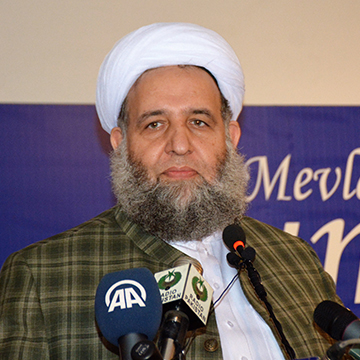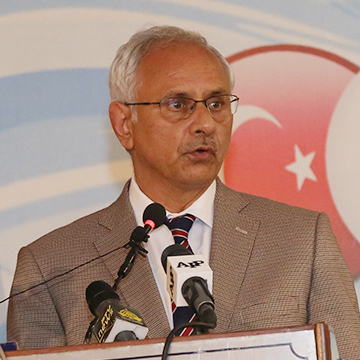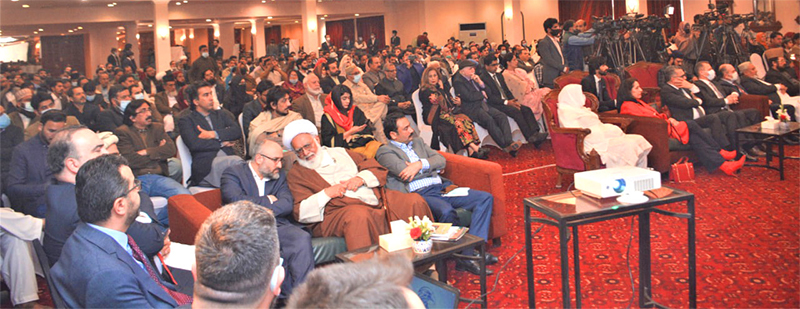|

|
|
Pir Noor-Ul-Haq Qadri
Federal Minister, Ministry of Religious Affairs and Interfaith Harmony, Pakistan
Guest of Honour
|
| |
Mevlana Rumi is like a spiritual teacher and a guide for Allama Iqbal and Iqbal admits that
پیرِ رومی خاک را اکسیر کرد
از غبارم جلوہ ہا تعمیر کرد
|
| |
|
“I was a dirt of road and it was Rumi’s perfection to build this dirt.”
|
When this thought reaches a certain point, it seems that in this meeting of thoughts, in this spiritual relationship, both (Iqbal and Rumi) are sitting face to face and are negotiating with each other. And their teachings were based on a relationship of moderation in society. As long as Mevlana Rumi’s books were being taught in Madrassas, the system of Madrassas was very good. Not long ago, Mevlana Rumi and Sa‘dī used to be part of the syllabus of religious schools in the late 1960’s and early 1970’s. Then we forgot both Rumi and Saadi.
Iqbal’s dream of Pakistan was based on Mevlana Rumi’s vision, thought and philosophy of humanity. There is also an imaginary tomb with the shrine of Mevlana Rumi named after Iqbal in Konya. And this tomb was built in the 1960’s. We should strive to build Pakistan as per Iqbal’s Vision.
|
|

|
|
Prof. Dr. Asghar Zaidi
Vice Chancellor, Government College University, Lahore
Guest of Honour
|
| |
|
Mevlana Rumi & Allama Iqbal are not only poets but representatives of Muslim thought and civilization. It is a matter of great honor and pride for the people of Pakistan, Turkey and for the Muslim world to have such great personalities. Both personalities lived in the era of turmoil yet provided hope and comfort to the bewildered humanity. What Rumi achieved in the 13th century, Iqbal, seeking inspiration from him, accomplished in the 20th century. Rumi’s teachings are based upon the dignity of man and transcendence of God. Iqbal’s concept of Khudi (Self-actualization) was inspired from Rumi. He, like Rumi, believes in the philosophy of change and evolution in the universe as a continuous act of God. The true face of Islam is what the Muslim societies have practiced for centuries intellectually and spiritually led by Sufis and poets like Rumi and Iqbal. We need to highlight this soft image of Islam and counter the phobias and negative propagandas being rapidly spread around the world. The best possible way is to focus our foundations laid in the pre-colonial era and teaching our youth about those values, traditions and ideas. Thoughts of Rumi and Iqbal are very important for the creation of peaceful and harmonious society. These thoughts encourage interfaith and interfaith harmony, provide a sense of dignity to humanity, provide bonding threads for human relations based on love and also provide a base for human equality.
|
|
|
|
|
|

|
|
|
|
|